Google refused to call out China over disinformation about Hong Kong — unlike Facebook and Twitter — and it could reignite criticism of its links to Beijing
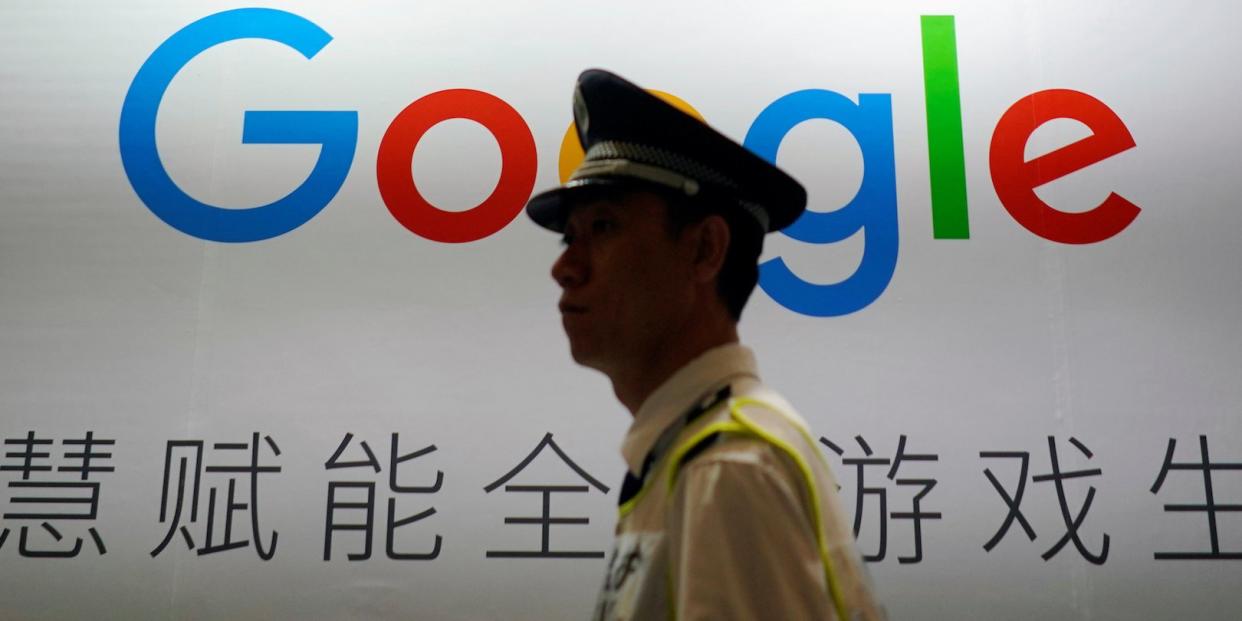
Aly Song/Reuters
Google stopped short of calling out China after disabling 210 YouTube channels linked to a coordinated disinformation campaign about the protests in Hong Kong.
Twitter and Facebook also banned accounts on their platforms this week, but they clearly linked the perpetrators to the Chinese state.
Google's apparent reticence could ignite criticism, from prominent figures like Peter Thiel, of the company's ties to Beijing.
Earlier this year, Thiel described Google's relationship with China as "seemingly treasonous" and said the FBI and the CIA should investigate. President Donald Trump said he would look into those claims.
Google's ties to China have been under scrutiny in recent months after it was revealed that the company was planning to develop a censored search engine in the country.
Google's refusal to call out China after tackling a disinformation campaign around the Hong Kong protests — days after Facebook and Twitter blamed China outright — could reignite criticism about the company's ties to Beijing.
Google on Thursday announced that YouTube, a platform it owns, had disabled 210 channels on the platform.
It said the reason was the channels' apparent ties to a coordinated influence operation around the Hong Kong protest movement, but the company stopped short of naming who was responsible.
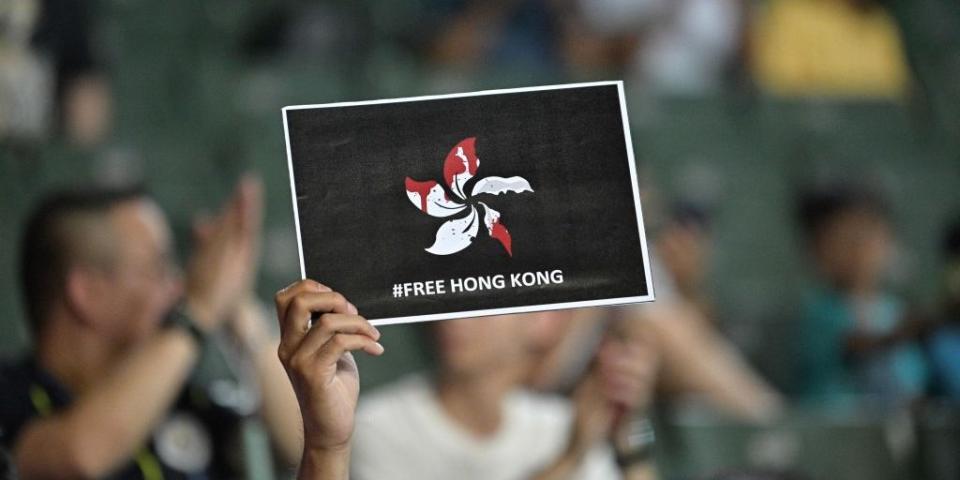
ANTHONY WALLACE/AFP/Getty Images
Facebook, YouTube, and Twitter are all formally banned in China.
Google has more activity in China than the other two companies, however. It operated there until 2010, when it pulled out, citing excessive censorship from the government.
Until earlier this year Google had a secret plan, codenamed Project Dragonfly, to accept a degree of censorship in return for being allowed back in the Chinese market. It also has an artificial-intelligence research division based in China.
Google announced that the Hong Kong disinformation network had been shut down in a Thursday blog post by Shane Huntley, a member of Google's security team.
The post said the videos uploaded were about the Hong Kong protest movement, which the Chinese government is running a campaign to discredit.
In the post, Huntley said the activity was "consistent with recent observations and actions related to China announced by Facebook and Twitter."
But unlike Twitter and Facebook, Google made no mention of who could be to blame.

Getty
When Twitter announced its deletion of 936 accounts, it cited its own "reliable evidence" that the disinformation network was "a coordinated state-backed operation" based in China.
Facebook, which detected five accounts, seven pages, and three groups sowing disinformation, said the campaign had "links to individuals associated with the Chinese government."
Google declined to answer Business Insider's questions about why it did not say where the activity could have come from.
The account removals appear to be part of a wider movement against state propaganda.
Twitter on Monday also said it would no longer accept advertising from state-controlled news media, while Facebook said it had no plans to change its ad policies, Reuters reported.
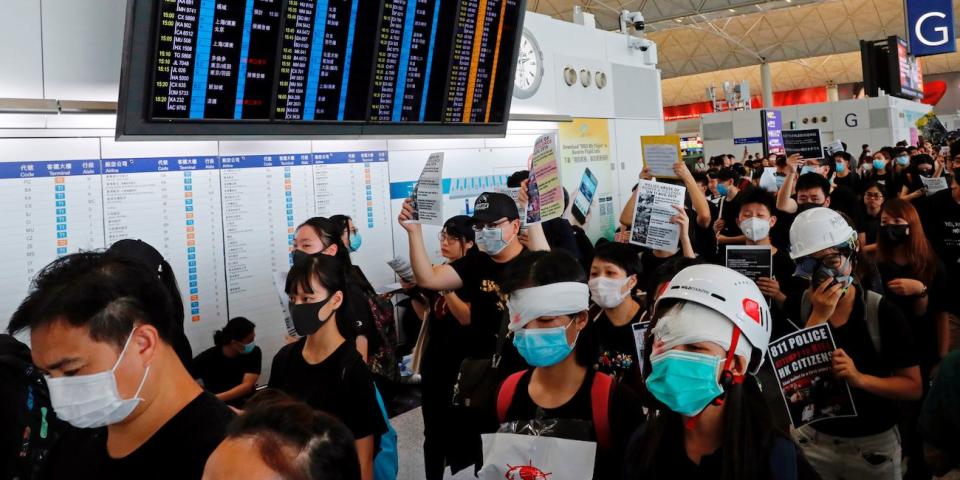
REUTERS/Tyrone Siu
Google declined to comment when asked whether YouTube would follow in Twitter's footsteps.
YouTube places disclaimers below its videos noting whether the uploader is part of a state-funded network, including the Chinese broadcasters Xinhua, CCTV, and CGTN.
It does not include this disclaimer for the Communist Party-run newspapers People's Daily, China Daily, and Global Times.
Google declined to comment when asked whether it would expand its labeling for Chinese state media.
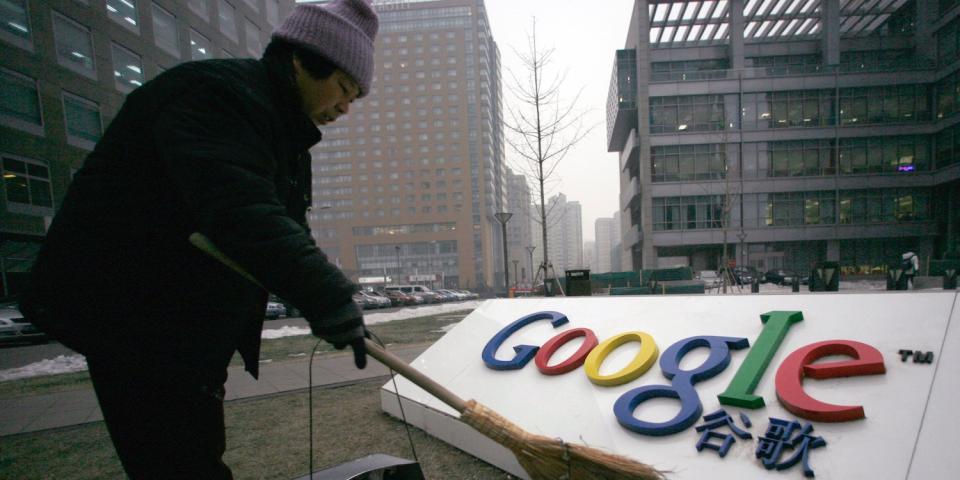
Reuters
While it's not clear why Google isn't blaming Beijing for the disinformation campaign, the apparent reticence could ignite criticism of the company's ties to the country.
Peter Thiel, the billionaire Silicon Valley investor who is a staunch supporter of President Donald Trump, has repeatedly attacked Google on the issue.
He particularly criticized Google for conducting artificial-intelligence research in China while simultaneously refusing to join the US Department of Defense's AI initiative, known as Project Maven.
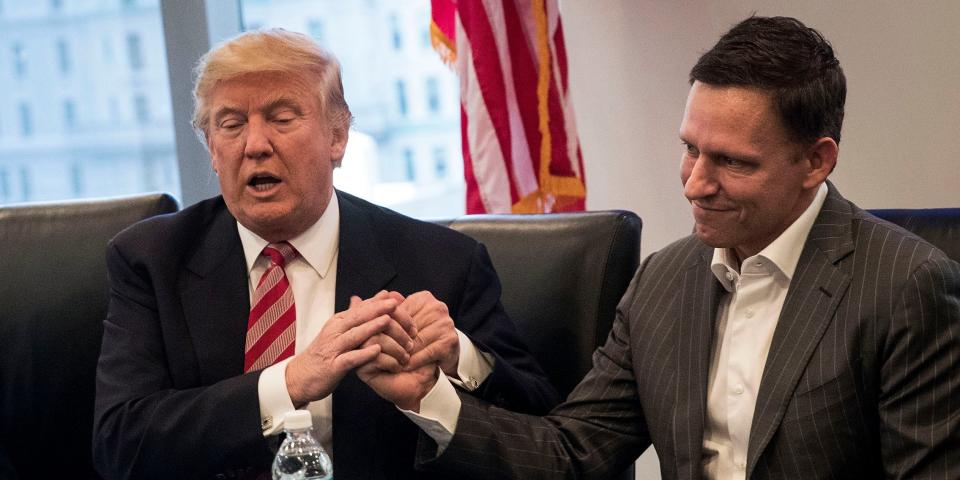
Getty
In a July speech and an August op-ed article in The New York Times, Thiel — who is a director at Facebook — described Google's relationship with China as "seemingly treasonous."
He suggested that the FBI and the CIA should investigate the links "in a not excessively gentle manner."
Trump has promised to look into Thiel's claims. It's not clear whether the Trump administration has acted on these calls yet.
Read all of Insider's coverage on Hong Kong here.
NOW WATCH: Why Apple's Mac Pro 'trash can' was a colossal failure

